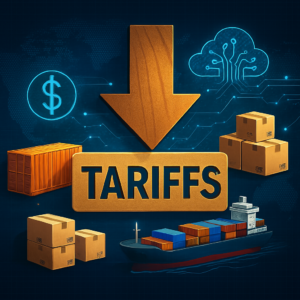Explore the implications of President Trump’s tariff policies, their effects on international trade, and the potential consequences for the U.S. economy.
Analyzing President Trump’s Tariff Policies and Their Economic Impact

Introduction
President Donald Trump’s administration has implemented a series of tariff measures aimed at addressing trade imbalances and protecting American industries. These policies have sparked significant debate regarding their effectiveness and potential repercussions on both the domestic and global economies.
Overview of Recent Tariff Actions
In a move to counter perceived unfair trade practices, President Trump announced the imposition of “reciprocal tariffs” set to take effect on April 2. These tariffs aim to match the duties that other countries impose on U.S. products, marking a significant shift in trade policy that has been in place since the 1960s. The administration argues that such measures are necessary to address substantial trade deficits and to promote fair competition for American companies. AP News+9New York Post+9AP News+9AP News+1Latest news & breaking headlines+1
Economic Implications
Economists have expressed concerns that these tariffs could lead to increased consumer prices and may not effectively reduce the U.S. trade deficit, which is influenced by broader economic factors. The implementation of tariffs often results in higher costs for imported goods, which can be passed on to consumers, potentially leading to inflationary pressures. AP News
Furthermore, financial institutions are raising alarms about the potential for these trade policies to trigger a recession. Goldman Sachs estimates a 35% chance of a recession within the next year, citing policy uncertainties and increased inflation as contributing factors. New York Magazine
Global Trade Relations
The introduction of these tariffs has the potential to disrupt global trade dynamics, affecting relationships with both allies and adversaries. By imposing duties that mirror those levied by other nations, the U.S. risks escalating trade tensions, which could lead to retaliatory measures and a possible trade war. Such developments could have far-reaching consequences for international economic stability. AP News
Conclusion
President Trump’s tariff policies represent a bold approach to addressing trade imbalances and protecting domestic industries. However, the potential economic implications, including higher consumer prices and strained international relations, warrant careful consideration. As these policies unfold, it is crucial to monitor their impact on both the U.S. and global economies.ABC7 Chicago
What are your thoughts on the effectiveness of tariff policies in addressing trade imbalances? Share your opinions in the comments below.